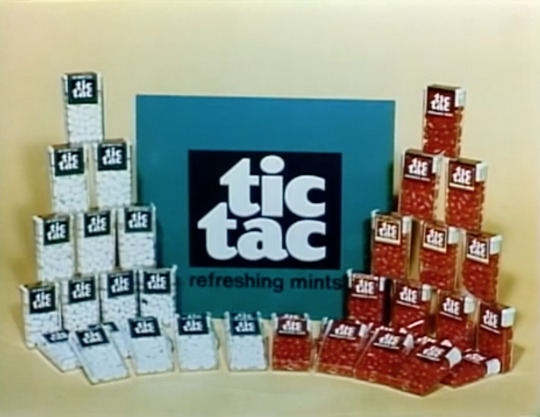#commerci
Text
I was meeting a client at a famous museum’s lounge for lunch (fancy, I know) and had an hour to kill afterwards so I joined the first random docent tour I could find. The woman who took us around was a great-grandmother from the Bronx “back when that was nothing to brag about” and she was doing a talk on alternative mediums within art.
What I thought that meant: telling us about unique sculpture materials and paint mixtures.
What that actually meant: an 84yo woman gingerly holding a beautifully beaded and embroidered dress (apparently from Ukraine and at least 200 years old) and, with tears in her eyes, showing how each individual thread was spun by hand and weaved into place on a cottage floor loom, with bright blue silk embroidery thread and hand-blown beads intricately piercing the work of other labor for days upon days, as the labor of a dozen talented people came together to make something so beautiful for a village girl’s wedding day.
What it also meant: in 1948, a young girl lived in a cramped tenement-like third floor apartment in Manhattan, with a father who had just joined them after not having been allowed to escape through Poland with his pregnant wife nine years earlier. She sits in her father’s lap and watches with wide, quiet eyes as her mother’s deft hands fly across fabric with bright blue silk thread (echoing hands from over a century years earlier). Thread that her mother had salvaged from white embroidery scraps at the tailor’s shop where she worked and spent the last few days carefully dying in the kitchen sink and drying on the roof.
The dress is in the traditional Hungarian fashion and is folded across her mother’s lap: her mother doesn’t had a pattern, but she doesn’t need one to make her daughter’s dress for the fifth grade dance. The dress would end up differing significantly from the pure white, petticoated first communion dresses worn by her daughter’s majority-Catholic classmates, but the young girl would love it all the more for its uniqueness and bright blue thread.
And now, that same young girl (and maybe also the villager from 19th century Ukraine) stands in front of us, trying not to clutch the old fabric too hard as her voice shakes with the emotion of all the love and humanity that is poured into the labor of art. The village girl and the girl in the Bronx were very different people: different centuries, different religions, different ages, and different continents. But the love in the stitches and beads on their dresses was the same. And she tells us that when we look at the labor of art, we don’t just see the work to create that piece - we see the labor of our own creations and the creations of others for us, and the value in something so seemingly frivolous.
But, maybe more importantly, she says that we only admire this piece in a museum because it happened to survive the love of the wearer and those who owned it afterwards, but there have been quite literally billions of small, quiet works of art in billions of small, quiet homes all over the world, for millennia. That your grandmother’s quilt is used as a picnic blanket just as Van Gogh’s works hung in his poor friends’ hallways. That your father’s hand-painted model plane sets are displayed in your parents’ livingroom as Grecian vases are displayed in museums. That your older sister’s engineering drawings in a steady, fine-lined hand are akin to Da Vinci’s scribbles of flying machines.
I don’t think there’s any dramatic conclusions to be drawn from these thoughts - they’ve been echoed by thousands of other people across the centuries. However, if you ever feel bad for spending all of your time sewing, knitting, drawing, building lego sets, or whatever else - especially if you feel like you have to somehow monetize or show off your work online to justify your labor - please know that there’s an 84yo museum docent in the Bronx who would cry simply at the thought of you spending so much effort to quietly create something that’s beautiful to you.
#shut up e#long post#Saturday thoughts#this has been in my drafts for a week haha#also this is the heart of why AI art feels so wrong#forget the discussion of copyright and theft etc - even if models were only trained on public domain they would still feel very wrong#because they’re not art. art is the labor of creation#even commercial art and art commissioned by the popes and kings of history: there is humanity in the labor of it#unrelated: I did not know living in the Bronx was now something to brag about. How the fuck do y’all New Yorkers afford this city???
25K notes
·
View notes
Text
people are drawing Steamboat Willie Mickey doing all this crazy shit and whatnot, but you could always do that. you can do that now, with current Mickey, just fine. it's fanart and it's legally protected. hell you could take Disney-drawn Mickey and put a caption about unions or whatever on it and it would still be protected under free speech and sometimes even parody law.
what is special about public domain is that you can SELL him. you could take a screenshot and sell it on a tshirt. you can use him to advertise your plumbing business. people have already uploaded and monetized the original film.
you could always have Mickey say what you want, but now you can profit off it.
#steamboat willie#Mickey mouse#Disney#public domain#you can't trademark him as like a logo or mascot of your plumbing business i just mean like#you can slap him in your commercial or side of the van#i just have seen soooo many people make ORIGINAL art of him and I'm like#no that's not the point!! you can already do that!!!#(obvs if it's a comic or something talking about him being free or whatever then yeah like i get it)#(but those people who put him as a fighter in their game?? Quinton reviews uploading the original video?? boss shit)#(THAT'S what it's about)
30K notes
·
View notes
Text
There was a McDonald’s commercial where the camera slowly panned to follow footprints in the sand to then show Jesus Christ walking on the beach eating a McRib. Words on the screen said, “It’s back.”
12K notes
·
View notes
Text
i want art to feel EARNEST. this disgusting, near pornographic level of tongue in cheek meta humor is making me sick to my stomach. i don’t know how many more movies i can take about clever subversions and the movie winking at you to say “we know it’s a little silly, but…” where is the whimsy? why can’t we believe in the pretend you’ve created? why don’t you have enough faith in it? in my ability to believe?
28K notes
·
View notes
Text
(in a job interview) i guess if i had to say my one strength it would be skipping the ad break on a podcast episode on the first try. yeah there's no button i just guess the number of minutes and i'm always right. oh you meant like work strengths? none
#stuff#me when i always know EXWCTLY how long the taz commercial break will be#they should pay me for this shit
8K notes
·
View notes
Text
HOLD FOR LAUGHS AND/OR APPLAUSE


#Lego commercial didn’t need to go THAT hard#I need a show about lego sonic now#sth#sonic the hedgehog#metal sonic#sage the ai#sage robotnik#organic metal sonic#shadow the hedgehog#shadow the ultimate lifeform#or live streamer#fanart#sonic
3K notes
·
View notes
Text
The Ken dance is so magnificent because it’s reminiscent of the Golden Age of Musicals when there would just be artful dance sequences for no reason other than the director wanted to have one.
#and in being technically unnecessary becomes one of the best scenes in the movie#barbie#barbie movie#barbie 2023#just ken#barbie spoilers#barbie movie spoilers#this movie includes so many moments that would technically be unnecessary or could be done so straightforward#like the opening or the barbie commercial#and its so great to see#uniqueness and fun in a film#also I'm pretty sure Ryan Gosling broke at least twice during that scene#which is also rare to see in a film#and unexpectedly fun#twilight-zoned-out
10K notes
·
View notes
Text
Petition to get Ryan Reynolds to play Paul Blofis in the PJO tv show. Sally Jackson deserves an exceptionally hot husband, and Ryan and Walker have such great chemistry in The Adam Project that I just want to watch them work together again. Ryan Reynolds was made to play the clueless but loving and well-meaning stepfather, and tbh if this show gets popular enough I feel like he'd be into it.
#pjo#pjo series#pjo tv show#spoilers#pjo spoilers#percy jackson#sally jackson#paul blofis#walker scobell#ryan reynolds#they are just so funny together#the adam project#disney#netflix#the fake mac and cheese commercial they did together to promote the adam project is cinema#hilarious
3K notes
·
View notes
Text

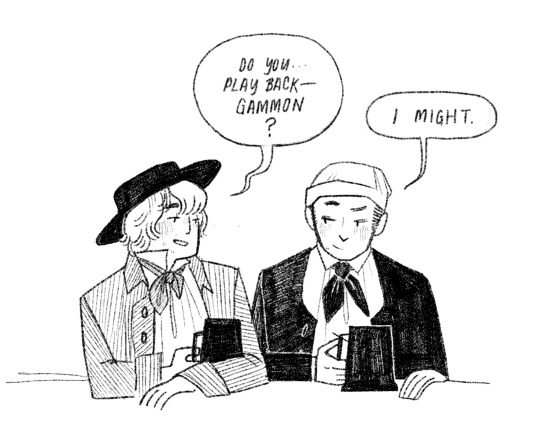
I can't stop reading the 1793 third edition of "A Classical Dictionary of the Vulgar Tongue" (originally published 1785). I have been irritating all my friends and coworkers with fun new terms like "That's the barber!" and "He looks like God's revenge against murder."
Anyway, Ash talked me into drawing some of the phrases and I ended up with these little mid-1780s Londoners.
#my art#digital art#history#18th century#the lads are sailors and the ladies are sex workers. i love looking at outfits in commercial prints of sex workers from the era
4K notes
·
View notes
Text

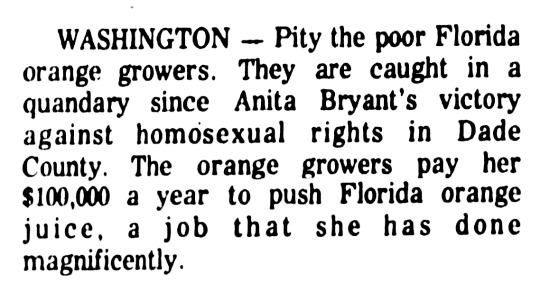

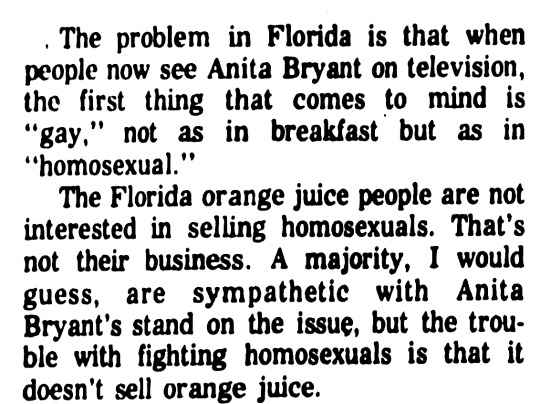

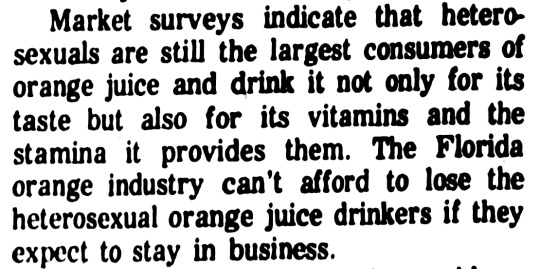
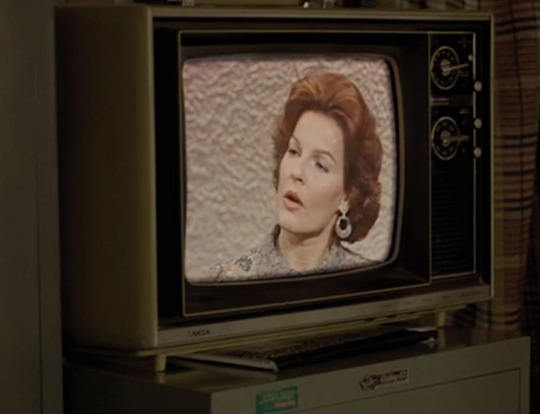


4K notes
·
View notes
Text

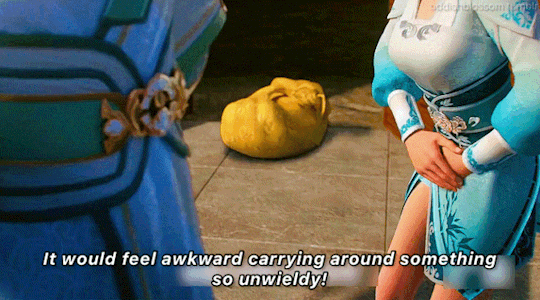
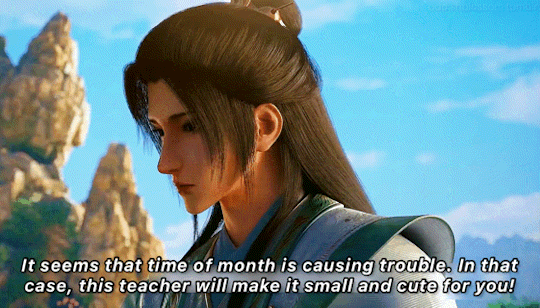

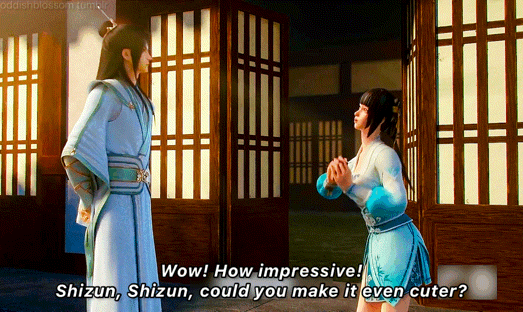


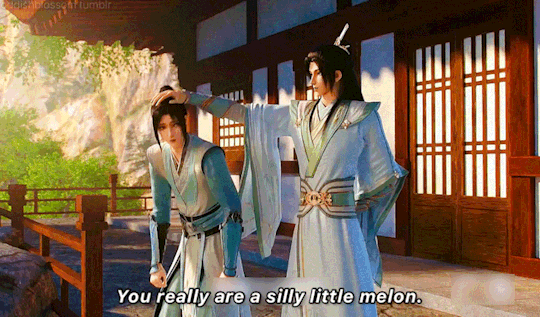
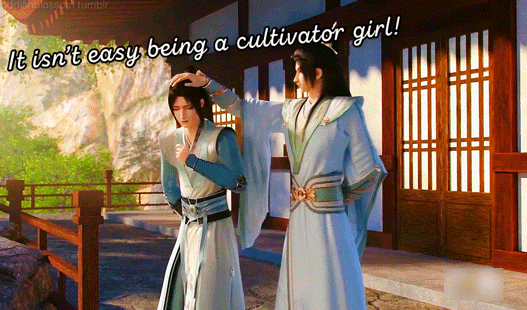
It isn’t easy being a cultivator girl…
SCUMBAG SYSTEM ✧・゚: *✧・゚Kotex PAWket Pad AD Break ✧・゚: *✧・゚
translation by @yuangler (x)
#svsssedit#svsss#mxtxnet#scumbag system#mxtx#人渣反派自救系统#scum villian self saving system#shen qingqiu#ning yingying#luo binghe#bingqiu#my gifs!#flashing tw#svsss donghua#gifs#1K!#i had… so many ideas for new scum villain gifsets like i couldn’t decide which one to work on first#then i saw the maxi pad commercial on my dash and i knew
3K notes
·
View notes
Text

1K notes
·
View notes
Text
When I started choosing embroidery patterns for my store, I was really focused on relatively small, simple designs. Things that would be quick and easy for beginners. But honestly... I think I underestimated just how easy the printed interfacing would be, since it's the needlework version of completing a dot-to-dot patterns. They take time, but none of the constant counting and ripping stitches out.
So that meant I've started to get ambitious. Little designs are still great, but what about a few designs that are dazzling from the other side of the room? As a treat?


Maybe just one of Giovanni Ostaus's shirt opening border designs from 1561?

Some fancy chickens and um... tulips? pomegranates? water fountains?

And just for me, a pattern you won't find in any history book, a little confection I made that I like to call: "Strawberry Fieldmice Forever"

That's only like, half of them. I just dumped a whole bunch onto my Etsy.
Interested?
Beginner-friendly historical and fantasy embroidery patterns, right this way!
#haberdashery#crass commercialism#I'm even having a Month of Darkness sale!#yes that's right we're giving up the pretense of Black Friday and calling November what it is.
2K notes
·
View notes
Text
Vesemir's first day ☀

Previous
#witcher#vesemir#geralt#kaer morhen#witcher yuppies#yes it's based on that french commercial image#I've been meaning to draw this for an entire year
1K notes
·
View notes
Text
Your car spies on you and rats you out to insurance companies
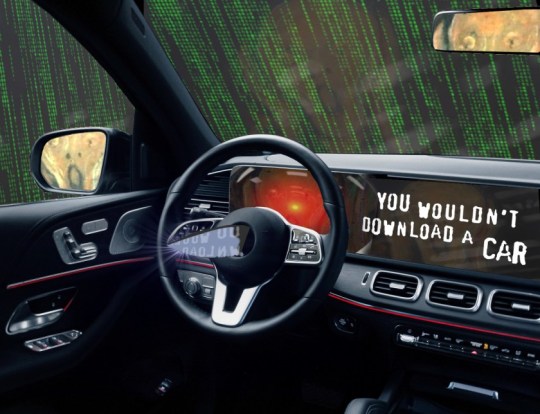
I'm on tour with my new, nationally bestselling novel The Bezzle! Catch me TOMORROW (Mar 13) in SAN FRANCISCO with ROBIN SLOAN, then Toronto, NYC, Anaheim, and more!

Another characteristically brilliant Kashmir Hill story for The New York Times reveals another characteristically terrible fact about modern life: your car secretly records fine-grained telemetry about your driving and sells it to data-brokers, who sell it to insurers, who use it as a pretext to gouge you on premiums:
https://www.nytimes.com/2024/03/11/technology/carmakers-driver-tracking-insurance.html
Almost every car manufacturer does this: Hyundai, Nissan, Ford, Chrysler, etc etc:
https://www.repairerdrivennews.com/2020/09/09/ford-state-farm-ford-metromile-honda-verisk-among-insurer-oem-telematics-connections/
This is true whether you own or lease the car, and it's separate from the "black box" your insurer might have offered to you in exchange for a discount on your premiums. In other words, even if you say no to the insurer's carrot – a surveillance-based discount – they've got a stick in reserve: buying your nonconsensually harvested data on the open market.
I've always hated that saying, "If you're not paying for the product, you're the product," the reason being that it posits decent treatment as a customer reward program, like the little ramekin warm nuts first class passengers get before takeoff. Companies don't treat you well when you pay them. Companies treat you well when they fear the consequences of treating you badly.
Take Apple. The company offers Ios users a one-tap opt-out from commercial surveillance, and more than 96% of users opted out. Presumably, the other 4% were either confused or on Facebook's payroll. Apple – and its army of cultists – insist that this proves that our world's woes can be traced to cheapskate "consumers" who expected to get something for nothing by using advertising-supported products.
But here's the kicker: right after Apple blocked all its rivals from spying on its customers, it began secretly spying on those customers! Apple has a rival surveillance ad network, and even if you opt out of commercial surveillance on your Iphone, Apple still secretly spies on you and uses the data to target you for ads:
https://pluralistic.net/2022/11/14/luxury-surveillance/#liar-liar
Even if you're paying for the product, you're still the product – provided the company can get away with treating you as the product. Apple can absolutely get away with treating you as the product, because it lacks the historical constraints that prevented Apple – and other companies – from treating you as the product.
As I described in my McLuhan lecture on enshittification, tech firms can be constrained by four forces:
I. Competition
II. Regulation
III. Self-help
IV. Labor
https://pluralistic.net/2024/01/30/go-nuts-meine-kerle/#ich-bin-ein-bratapfel
When companies have real competitors – when a sector is composed of dozens or hundreds of roughly evenly matched firms – they have to worry that a maltreated customer might move to a rival. 40 years of antitrust neglect means that corporations were able to buy their way to dominance with predatory mergers and pricing, producing today's inbred, Habsburg capitalism. Apple and Google are a mobile duopoly, Google is a search monopoly, etc. It's not just tech! Every sector looks like this:
https://www.openmarketsinstitute.org/learn/monopoly-by-the-numbers
Eliminating competition doesn't just deprive customers of alternatives, it also empowers corporations. Liberated from "wasteful competition," companies in concentrated industries can extract massive profits. Think of how both Apple and Google have "competitively" arrived at the same 30% app tax on app sales and transactions, a rate that's more than 1,000% higher than the transaction fees extracted by the (bloated, price-gouging) credit-card sector:
https://pluralistic.net/2023/06/07/curatorial-vig/#app-tax
But cartels' power goes beyond the size of their warchest. The real source of a cartel's power is the ease with which a small number of companies can arrive at – and stick to – a common lobbying position. That's where "regulatory capture" comes in: the mobile duopoly has an easier time of capturing its regulators because two companies have an easy time agreeing on how to spend their app-tax billions:
https://pluralistic.net/2022/06/05/regulatory-capture/
Apple – and Google, and Facebook, and your car company – can violate your privacy because they aren't constrained regulation, just as Uber can violate its drivers' labor rights and Amazon can violate your consumer rights. The tech cartels have captured their regulators and convinced them that the law doesn't apply if it's being broken via an app:
https://pluralistic.net/2023/04/18/cursed-are-the-sausagemakers/#how-the-parties-get-to-yes
In other words, Apple can spy on you because it's allowed to spy on you. America's last consumer privacy law was passed in 1988, and it bans video-store clerks from leaking your VHS rental history. Congress has taken no action on consumer privacy since the Reagan years:
https://www.eff.org/tags/video-privacy-protection-act
But tech has some special enshittification-resistant characteristics. The most important of these is interoperability: the fact that computers are universal digital machines that can run any program. HP can design a printer that rejects third-party ink and charge $10,000/gallon for its own colored water, but someone else can write a program that lets you jailbreak your printer so that it accepts any ink cartridge:
https://www.eff.org/deeplinks/2020/11/ink-stained-wretches-battle-soul-digital-freedom-taking-place-inside-your-printer
Tech companies that contemplated enshittifying their products always had to watch over their shoulders for a rival that might offer a disenshittification tool and use that as a wedge between the company and its customers. If you make your website's ads 20% more obnoxious in anticipation of a 2% increase in gross margins, you have to consider the possibility that 40% of your users will google "how do I block ads?" Because the revenue from a user who blocks ads doesn't stay at 100% of the current levels – it drops to zero, forever (no user ever googles "how do I stop blocking ads?").
The majority of web users are running an ad-blocker:
https://doc.searls.com/2023/11/11/how-is-the-worlds-biggest-boycott-doing/
Web operators made them an offer ("free website in exchange for unlimited surveillance and unfettered intrusions") and they made a counteroffer ("how about 'nah'?"):
https://www.eff.org/deeplinks/2019/07/adblocking-how-about-nah
Here's the thing: reverse-engineering an app – or any other IP-encumbered technology – is a legal minefield. Just decompiling an app exposes you to felony prosecution: a five year sentence and a $500k fine for violating Section 1201 of the DMCA. But it's not just the DMCA – modern products are surrounded with high-tech tripwires that allow companies to invoke IP law to prevent competitors from augmenting, recongifuring or adapting their products. When a business says it has "IP," it means that it has arranged its legal affairs to allow it to invoke the power of the state to control its customers, critics and competitors:
https://locusmag.com/2020/09/cory-doctorow-ip/
An "app" is just a web-page skinned in enough IP to make it a crime to add an ad-blocker to it. This is what Jay Freeman calls "felony contempt of business model" and it's everywhere. When companies don't have to worry about users deploying self-help measures to disenshittify their products, they are freed from the constraint that prevents them indulging the impulse to shift value from their customers to themselves.
Apple owes its existence to interoperability – its ability to clone Microsoft Office's file formats for Pages, Numbers and Keynote, which saved the company in the early 2000s – and ever since, it has devoted its existence to making sure no one ever does to Apple what Apple did to Microsoft:
https://www.eff.org/deeplinks/2019/06/adversarial-interoperability-reviving-elegant-weapon-more-civilized-age-slay
Regulatory capture cuts both ways: it's not just about powerful corporations being free to flout the law, it's also about their ability to enlist the law to punish competitors that might constrain their plans for exploiting their workers, customers, suppliers or other stakeholders.
The final historical constraint on tech companies was their own workers. Tech has very low union-density, but that's in part because individual tech workers enjoyed so much bargaining power due to their scarcity. This is why their bosses pampered them with whimsical campuses filled with gourmet cafeterias, fancy gyms and free massages: it allowed tech companies to convince tech workers to work like government mules by flattering them that they were partners on a mission to bring the world to its digital future:
https://pluralistic.net/2023/09/10/the-proletarianization-of-tech-workers/
For tech bosses, this gambit worked well, but failed badly. On the one hand, they were able to get otherwise powerful workers to consent to being "extremely hardcore" by invoking Fobazi Ettarh's spirit of "vocational awe":
https://www.inthelibrarywiththeleadpipe.org/2018/vocational-awe/
On the other hand, when you motivate your workers by appealing to their sense of mission, the downside is that they feel a sense of mission. That means that when you demand that a tech worker enshittifies something they missed their mother's funeral to deliver, they will experience a profound sense of moral injury and refuse, and that worker's bargaining power means that they can make it stick.
Or at least, it did. In this era of mass tech layoffs, when Google can fire 12,000 workers after a $80b stock buyback that would have paid their wages for the next 27 years, tech workers are learning that the answer to "I won't do this and you can't make me" is "don't let the door hit you in the ass on the way out" (AKA "sharpen your blades boys"):
https://techcrunch.com/2022/09/29/elon-musk-texts-discovery-twitter/
With competition, regulation, self-help and labor cleared away, tech firms – and firms that have wrapped their products around the pluripotently malleable core of digital tech, including automotive makers – are no longer constrained from enshittifying their products.
And that's why your car manufacturer has chosen to spy on you and sell your private information to data-brokers and anyone else who wants it. Not because you didn't pay for the product, so you're the product. It's because they can get away with it.
Cars are enshittified. The dozens of chips that auto makers have shoveled into their car design are only incidentally related to delivering a better product. The primary use for those chips is autoenshittification – access to legal strictures ("IP") that allows them to block modifications and repairs that would interfere with the unfettered abuse of their own customers:
https://pluralistic.net/2023/07/24/rent-to-pwn/#kitt-is-a-demon
The fact that it's a felony to reverse-engineer and modify a car's software opens the floodgates to all kinds of shitty scams. Remember when Bay Staters were voting on a ballot measure to impose right-to-repair obligations on automakers in Massachusetts? The only reason they needed to have the law intervene to make right-to-repair viable is that Big Car has figured out that if it encrypts its diagnostic messages, it can felonize third-party diagnosis of a car, because decrypting the messages violates the DMCA:
https://www.eff.org/deeplinks/2013/11/drm-cars-will-drive-consumers-crazy
Big Car figured out that VIN locking – DRM for engine components and subassemblies – can felonize the production and the installation of third-party spare parts:
https://pluralistic.net/2022/05/08/about-those-kill-switched-ukrainian-tractors/
The fact that you can't legally modify your car means that automakers can go back to their pre-2008 ways, when they transformed themselves into unregulated banks that incidentally manufactured the cars they sold subprime loans for. Subprime auto loans – over $1t worth! – absolutely relies on the fact that borrowers' cars can be remotely controlled by lenders. Miss a payment and your car's stereo turns itself on and blares threatening messages at top volume, which you can't turn off. Break the lease agreement that says you won't drive your car over the county line and it will immobilize itself. Try to change any of this software and you'll commit a felony under Section 1201 of the DMCA:
https://pluralistic.net/2021/04/02/innovation-unlocks-markets/#digital-arm-breakers
Tesla, naturally, has the most advanced anti-features. Long before BMW tried to rent you your seat-heater and Mercedes tried to sell you a monthly subscription to your accelerator pedal, Teslas were demon-haunted nightmare cars. Miss a Tesla payment and the car will immobilize itself and lock you out until the repo man arrives, then it will blare its horn and back itself out of its parking spot. If you "buy" the right to fully charge your car's battery or use the features it came with, you don't own them – they're repossessed when your car changes hands, meaning you get less money on the used market because your car's next owner has to buy these features all over again:
https://pluralistic.net/2023/07/28/edison-not-tesla/#demon-haunted-world
And all this DRM allows your car maker to install spyware that you're not allowed to remove. They really tipped their hand on this when the R2R ballot measure was steaming towards an 80% victory, with wall-to-wall scare ads that revealed that your car collects so much information about you that allowing third parties to access it could lead to your murder (no, really!):
https://pluralistic.net/2020/09/03/rip-david-graeber/#rolling-surveillance-platforms
That's why your car spies on you. Because it can. Because the company that made it lacks constraint, be it market-based, legal, technological or its own workforce's ethics.
One common critique of my enshittification hypothesis is that this is "kind of sensible and normal" because "there’s something off in the consumer mindset that we’ve come to believe that the internet should provide us with amazing products, which bring us joy and happiness and we spend hours of the day on, and should ask nothing back in return":
https://freakonomics.com/podcast/how-to-have-great-conversations/
What this criticism misses is that this isn't the companies bargaining to shift some value from us to them. Enshittification happens when a company can seize all that value, without having to bargain, exploiting law and technology and market power over buyers and sellers to unilaterally alter the way the products and services we rely on work.
A company that doesn't have to fear competitors, regulators, jailbreaking or workers' refusal to enshittify its products doesn't have to bargain, it can take. It's the first lesson they teach you in the Darth Vader MBA: "I am altering the deal. Pray I don't alter it any further":
https://pluralistic.net/2023/10/26/hit-with-a-brick/#graceful-failure
Your car spying on you isn't down to your belief that your carmaker "should provide you with amazing products, which brings your joy and happiness you spend hours of the day on, and should ask nothing back in return." It's not because you didn't pay for the product, so now you're the product. It's because they can get away with it.
The consequences of this spying go much further than mere insurance premium hikes, too. Car telemetry sits at the top of the funnel that the unbelievably sleazy data broker industry uses to collect and sell our data. These are the same companies that sell the fact that you visited an abortion clinic to marketers, bounty hunters, advertisers, or vengeful family members pretending to be one of those:
https://pluralistic.net/2022/05/07/safegraph-spies-and-lies/#theres-no-i-in-uterus
Decades of pro-monopoly policy led to widespread regulatory capture. Corporate cartels use the monopoly profits they extract from us to pay for regulatory inaction, allowing them to extract more profits.
But when it comes to privacy, that period of unchecked corporate power might be coming to an end. The lack of privacy regulation is at the root of so many problems that a pro-privacy movement has an unstoppable constituency working in its favor.
At EFF, we call this "privacy first." Whether you're worried about grifters targeting vulnerable people with conspiracy theories, or teens being targeted with media that harms their mental health, or Americans being spied on by foreign governments, or cops using commercial surveillance data to round up protesters, or your car selling your data to insurance companies, passing that long-overdue privacy legislation would turn off the taps for the data powering all these harms:
https://www.eff.org/wp/privacy-first-better-way-address-online-harms
Traditional economics fails because it thinks about markets without thinking about power. Monopolies lead to more than market power: they produce regulatory capture, power over workers, and state capture, which felonizes competition through IP law. The story that our problems stem from the fact that we just don't spend enough money, or buy the wrong products, only makes sense if you willfully ignore the power that corporations exert over our lives. It's nice to think that you can shop your way out of a monopoly, because that's a lot easier than voting your way out of a monopoly, but no matter how many times you vote with your wallet, the cartels that control the market will always win:
https://pluralistic.net/2024/03/05/the-map-is-not-the-territory/#apor-locksmith

Name your price for 18 of my DRM-free ebooks and support the Electronic Frontier Foundation with the Humble Cory Doctorow Bundle.

If you'd like an essay-formatted version of this post to read or share, here's a link to it on pluralistic.net, my surveillance-free, ad-free, tracker-free blog:
https://pluralistic.net/2024/03/12/market-failure/#car-wars

Image:
Cryteria (modified)
https://commons.wikimedia.org/wiki/File:HAL9000.svg
CC BY 3.0
https://creativecommons.org/licenses/by/3.0/deed.en
#pluralistic#if you're not paying for the product you're the product#if you're paying for the product you're the product#cars#automotive#enshittification#technofeudalism#autoenshittification#antifeatures#felony contempt of business model#twiddling#right to repair#privacywashing#apple#lexisnexis#insuretech#surveillance#commercial surveillance#privacy first#data brokers#subprime#kash hill#kashmir hill
2K notes
·
View notes
